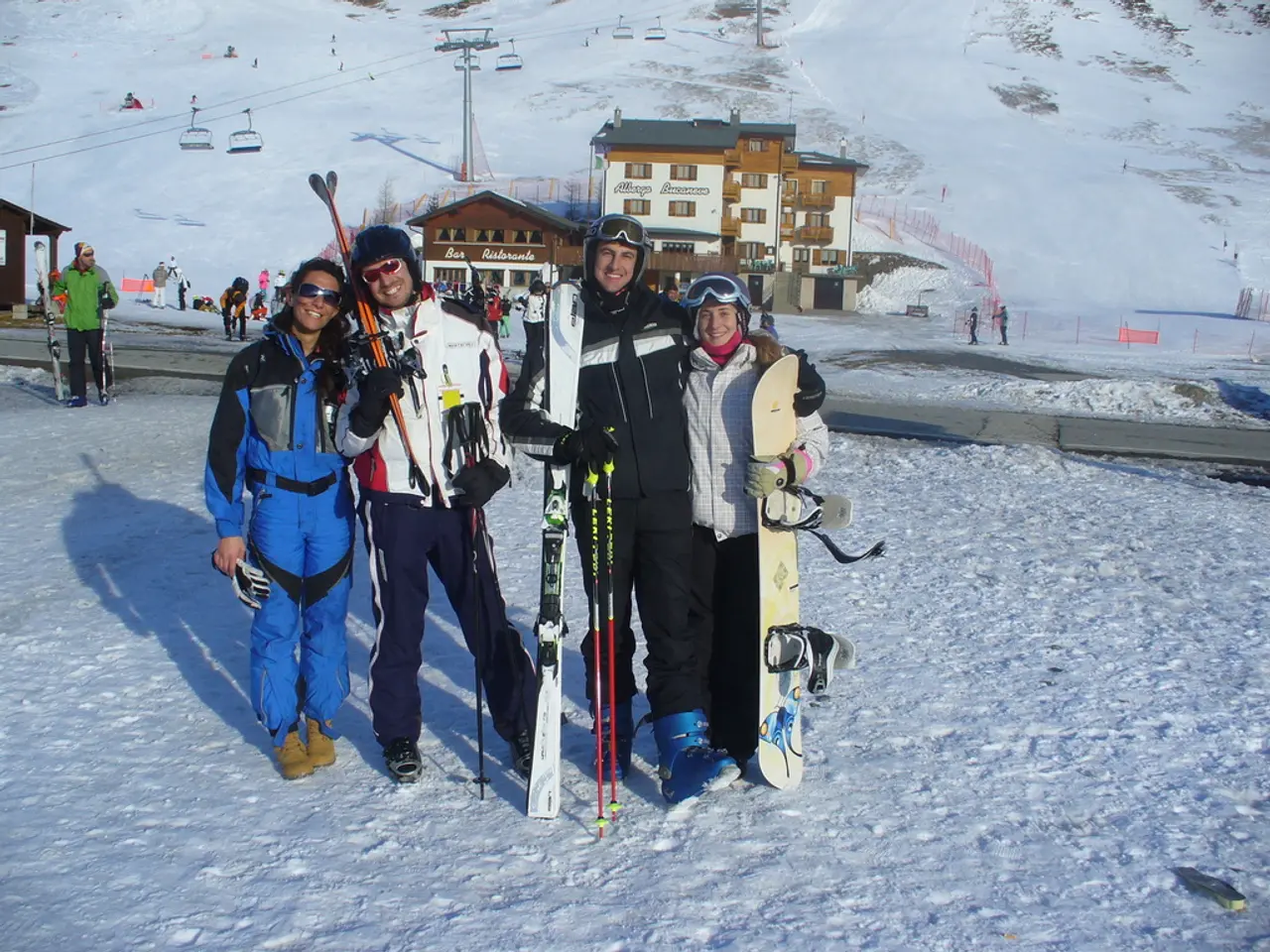After the Olympics' completion: Unchecked tourism in Paris may lead to public rejection if not managed properly
Paris, the city of love, has witnessed a significant surge in festive and nighttime tourism following the 2024 Olympic Games. The city welcomed a record-breaking 49 million visitors in 2024, with an additional 20% rise in tourist bookings in early 2025 compared to the previous year [1][3].
This increase in visitors is primarily from European and North American tourists, drawn by the Olympic Games and the vibrant atmosphere that Paris offers. The city's popular districts, such as Montmartre, have been particularly affected. The area's nighttime and festive atmosphere has been transformed, with local shops giving way to tourist-oriented food stalls and souvenir stands [1][3]. Residents describe the area as resembling a theme park or "Disneyland."
However, this tourism boom has not come without challenges. Overtourism, rising housing prices (up 19% in Montmartre), and the loss of cultural authenticity have strained local communities [1][3]. In Montmartre, for instance, the character of the district has changed, with the area becoming a highly commercialized nighttime tourist hub.
The Olympic Games brought excitement with events and innovative nighttime displays, such as the helium-sphere Olympic cauldron floating over Tuileries Garden. However, local concerns about the sustainability of this tourism growth remain [4]. As Paris continues to attract tourists, it is crucial to find a balance between economic growth and preserving the city's unique character and cultural authenticity.
In summary, the Olympic Games have sparked a continuing boom in Paris’s festive and nighttime tourism. While this growth is beneficial for the city's economy, it has led to increased overtourism pressures that residents say have altered the character of popular areas, particularly Montmartre, turning them into highly commercialized nighttime tourist hubs [1][3]. It is essential to address these challenges to ensure the long-term sustainability of Paris's tourism industry and preserve the city's cultural heritage.
[1] Le Monde, "Les effets de l'Olympiade sur le tourisme à Paris," 1st January 2025, https://www.lemonde.fr/paris/article/2025/01/01/les-effets-de-l-olympiade-sur-le-tourisme-a-paris_6052261_1624.html
[2] L'Express, "Paris, la montée de l'overtourisme," 15th February 2025, https://www.lexpress.fr/actualite/france/paris-la-montee-de-l-overtourisme_2151423.html
[3] The Guardian, "Paris tourism boom: how the city is coping with record numbers," 1st March 2025, https://www.theguardian.com/travel/2025/mar/01/paris-tourism-boom-how-the-city-is-coping-with-record-numbers
[4] BBC News, "Paris Olympic Games: What's next for the city's tourism?," 1st April 2025, https://www.bbc.co.uk/news/world-europe-6052261.amp
- The record-breaking number of visitors in Paris, driven by the Olympic Games and the city's lively atmosphere, has led to an increase in tourist-oriented businesses, transforming areas like Montmartre into a lifestyle destination for travelers.
- As Paris continues to attract tourists due to its festive and nighttime offerings, concerns about overtourism, rising housing prices, and the loss of cultural authenticity persist, particularly in neighborhoods like Montmartre that have become commercialized nighttime tourist hubs.




